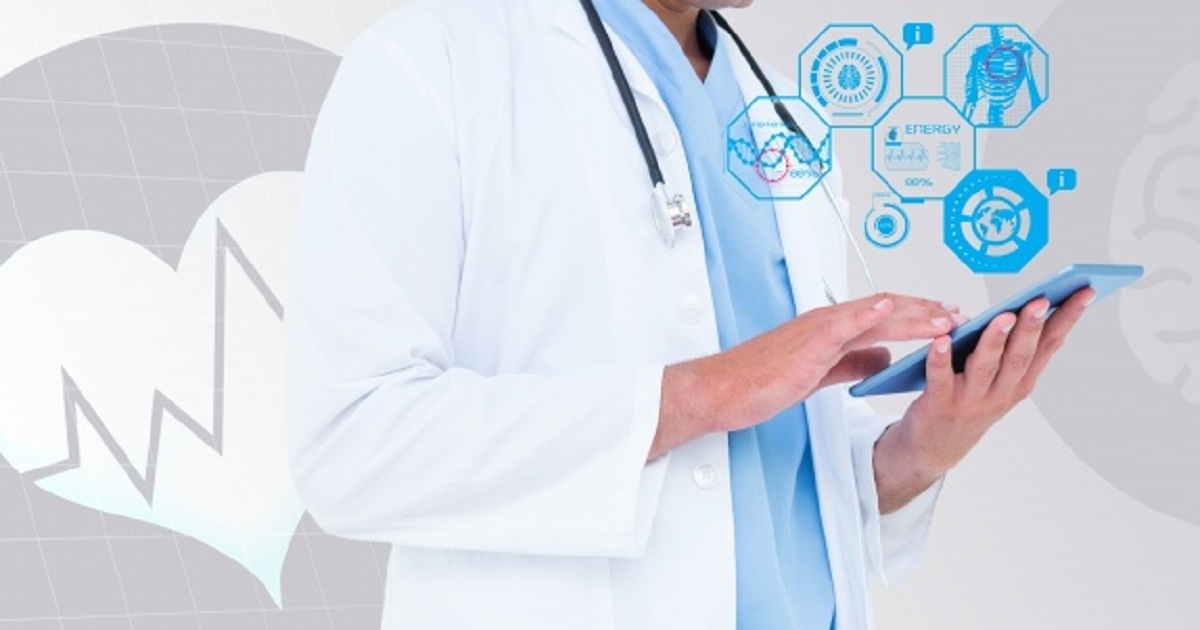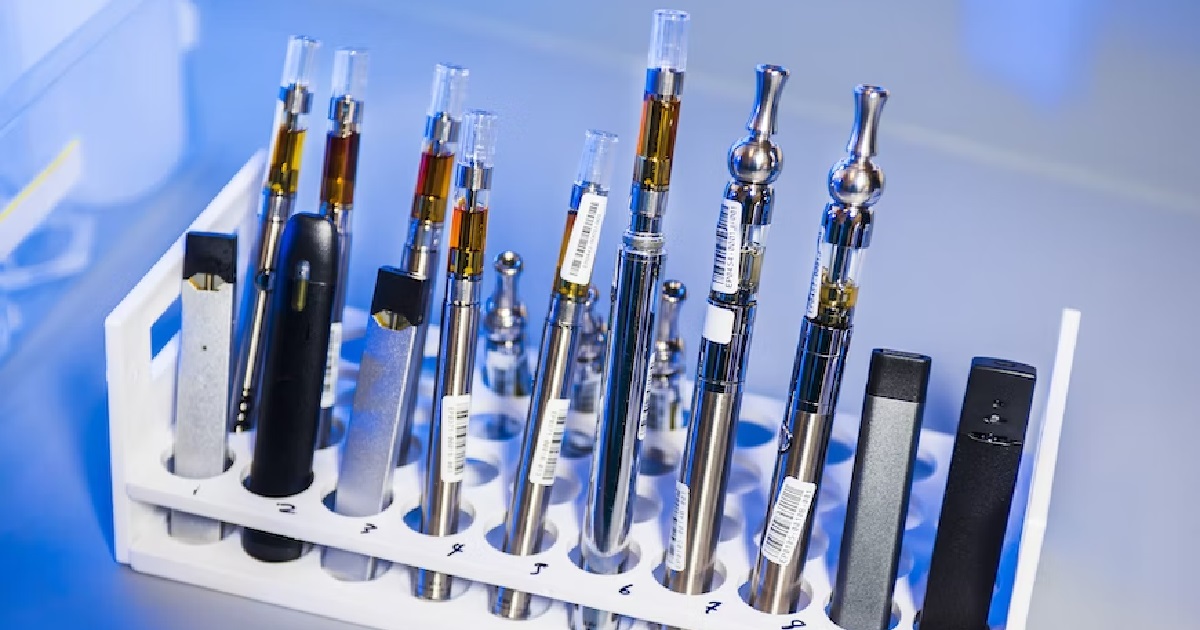
Health Technology, Digital Healthcare
Article | August 21, 2023
COVID-19 has sped up the adoption of healthcare technology solutions by healthcare providers. This has unexpectedly brought a peak in opportunity for health tech companies to achieve important business, demonstrating your innovations. However, it is very challenging and competitive as bigger health tech companies pivot and new health tech start-ups keep coming into the healthcare market. This also makes the healthcare technology market an increasingly competitive space.
Thus, all health tech companies need to depend more on effective health tech messaging for their business purpose and credibility. This will help them bring their targeted clients on board for the long-term.
Health tech Messaging Challenges Faced by Marketers
Nowadays, the process of marketing products online is a combat sport. With every passing year, it is becoming more challenging for health tech marketers to beat the algorithms, build the audience, and ultimately win the hearts of the customers through effective health tech messaging.
Digital health leaders are coming up with amazing technology innovations that can revolutionize the healthcare industry. Electronic medical records (EMR) software, medical billing software, medical practice management software, electronic claims software, medical database software, medical research software, medical diagnosis software, medical imaging software, telemedicine software, etc. are some of the examples of amazing technology innovations and latest healthcare technologies. But, things fall apart when it comes to marketing through effective health tech messaging. The following are some of the health tech messaging challenges faced by marketers.
• Communicating the purpose and value of your business and the products effectively to
clients
• Making the clients understand the credibility of the technology products and your business
• Product positioning
• Lack of clear healthcare marketing strategy
• Bad marketing advice
• Lack of effective and compelling marketing content
• Failing to understand the client/buyer persona
• Failing to understand the brand pillars,
• Ignorant of effective use of various messaging channels, and much more
Why Does Effective Health Tech Messaging Matter?
From the introduction part, you might have already understood the power of a good health tech messaging strategy. If you do not have a unified marketing strategy, you will end up merely alienating potential customers; they may end up in confusion about the purpose of your health tech brand. Moreover, without an effective health tech messaging strategy, you may become incoherent to your audience. But the real impact of a cohesive and good health tech messaging strategy will surely go beyond everything we have talked about already and empower your business in all aspects.
Different marketing materials, whether they are social media posts, emails, podcasts, videos, or something else, your health tech messaging strategy will guide you in determining what to focus on and what tone to be used. If you are planning a social media campaign or writing blogs and articles, you will know the attention-grabbing ways of speaking to your customers. This is possible only if you have a defined messaging strategy. Customer service teamwork also becomes more effective and easier, when you have a good health tech messaging strategy. Educating the customer is easier when you speak to them in a tone and language that you know they will understand. Doing it consistently makes you win the customer.
How Health Tech Messaging Can Work for Reaching Healthcare Decision Makers
It is not an easy task to engage healthcare decision-makers in hospitals, insurance providers, health systems, and private practices. These high-powered directors, managers, and executives are busier than ever. This makes the process of health tech marketing difficult. Apart from overwhelming job responsibilities, these healthcare professionals are also inundated with ads, emails, and phone calls. So rather than sending them messages randomly, it is important to help your prospects when they are free from their daily disruptions and have time.
Here, an effective health tech messaging strategy can help you reach out to decision makers easily. Health tech messaging strategy lays out various health tech marketing techniques, tricks, or tactics. These health tech messaging techniques or methodologies are helpful in the three stages of your health tech client journey: awareness, consideration, and decision making stages. Through all these stages of health tech massaging, you help or influence health tech decision makers to recognise they have a problem, consider a solution, and finally they take the decision to purchase your product.
4 Factors Influencing the Effectiveness of Health Tech Messaging
Performing your brand messaging haphazardly is not going to take you anywhere in reaching out to people, who need your products. Instead, you should slow down yourself a bit and build a compelling health tech messaging strategy. Test it, launch it, and learn from it.
If you are strategic, you are truly going to drive your mission despite the noise that is existing on the internet today. Here are four important factors that will help you make your health tech messaging strategy effective and compelling.
Understanding Your Targeted Audience
You have a better idea of who you are and what you offer. Now you need to know who your audience is, which is equally important in building health tech messaging strategy. Throughout the process of messaging, it is vital to keep your ideal buyer in mind. So, you will only create messages that will resonate with the needs, interests, motivations, and pain points of your potential clients. The things you want to know about your targeted clients are called buyer/client persona.
Buyer Persona
It is better to create a buyer persona that tells who your customer and what their goals are. Buyer persona also will help you align your brand with your customers. According to HubSpot, a buyer persona can be a semi-fictional representation of your potential customers based on real data and market research and about your current customers.
Knowing who your messages are aimed at is important in developing a successful health tech brand messaging strategy. Before you go any further, buyer persona makes you know:
• Who you are marketing to
• What they care about and value
• The sort of language they use and will respond to
• Geographical location
• Educational and income levels
• Psychographics and behavioral patterns, etc.
Focusing on Your Differentiating Factors from Competitors
To figure out your differentiating factors from the competitors is as important as you understand your place in the market. You will have to assess the differences and similarities between the products and services you offer and your competitors’ offerings. Also, compare the targeted audience of you and your competitors.
Understanding your competition, you face from the market, will get you a clear image of your brand and what health tech message you may have to send out to your targeted audience. Just remember that each of the health tech brands can have only one message; it needs to be unique. Due to the competition, messages can be too similar, but it should not make your customers get confused about your business.
Thus, communicating your uniqueness to your audience is a very important factor. In this regard, conducting some competitor analysis may help you a lot.
Making your Value Propositions Obvious
You can influence how people perceive your brand if you could successfully communicate the values of your business. Values are principles or mission that guide all actions of brands. Storytelling can be effectively used to illustrate the values of your brand. Success stories from Salesforce and Microsoft’s Story Labs are examples. These stories can be on things such as empowering small businesses or improving the world through technology. It creates loyalty when you make your clients feel they are part of something that is going to change the world for the better.
It is very helpful to start your health tech messaging process with your value prop because it is the core of what you do and who you are. Your value prop explains both the emotional and functional benefits your service or products provides. This means the value people get out of your products. Communicating the values of your company is considered strong health tech messaging only when it specifies how your brand is going to solve a problem and why should people choose your product.
Using Multiple Technology Channels for Brand Messaging
In general, digital health tech messaging has to be pinpointed. The spray and pray method will not work to bring in inbound leads. However, if you want to reach out to health tech audience with your health tech messaging, you should be there on all the channels they are on. Here are a few examples of channels, which can be used to reach out to people effectively with your health tech messaging process.
Digital Ads
If digital ads are used effectively for health tech messaging, you can reach out to your target audience easily. When digital ads are used correctly, you can pinpoint the audience through audience targeting and keywords. Moreover, through ad channels, you can reach out to people who otherwise would not have ever known about your products. However, if you are not using digital ads effectively, you will lose money without any results.
Social Media
Most people are active on some sort of social media channels. Many of these people use these channels either for networking or educating themselves in their field.
This is the reason why you should concentrate on social media platforms for effective health tech messaging in a way that encourages interaction and feedback. Along with establishing a strong relationship with your prospects, you can also use social media platforms to build brand awareness through health tech messaging process.
Emails
Emails are the fruitful medium for effective health tech messaging. You can build brand awareness through seeding emails regularly. It will work as a bookmark than a selling point. Potential clients will remember the good interaction you had with them through emails when they have a problem in the future.
Along with these channels, other channels such as videos, websites, blogs, articles, podcasts, etc. also can be used for effective health tech messaging. These multiple channels, where most of your potential clients are present, are selling points for your health tech products or helps in lead generation for healthcare technology products.
To sum up, what matters more in health tech messaging and marketing is projecting your values, differentiating factors, knowing A to Z about your targeted audience, and meeting them on the channel, where they are present. Your health tech brand message is something that makes you dwell in the minds of people. Thus, how you are perceived matters a lot. Start building your brand today by sending out effective health tech messages to your potential clients.
Frequently Asked Questions
How does health tech messaging help?
Heathtech messaging helps you to improve your business by making your potential clients understand what you are and what you do. Brand awareness of your products is done through effective health tech messaging.
What is the best health tech messaging method?
The best health tech messaging method is to project your business values in all the marketing campaigns you do. It should specify what your customers can expect from your products and services and what changes it will make in society.
How does technology help in healthcare?
Technology helps healthcare to avail all patients the best treatment available and make them satisfied and engaged. Also, technology helps healthcare industry to innovate treatments and revolutionize the entire practice in the healthcare sector.
Why is technology important in healthcare?
For achieving optimum patient satisfaction and engagement, technology is important in healthcare. Also, technology plays a role in improving the healthcare system and saving the lives of people.
Read More

Health Technology, AI
Article | July 18, 2023
Smoking has a lot of consequences to one’s health. It can lead to cancer, heart disease, and chronic obstructive pulmonary disease—all of which are chronic diseases. This is part of the reason why the Health and Human Services agency reports that 70% of adult smokers want to quit. As a medical provider, adults looking to stop smoking will come to you for advice and treatment. One alternative smoking product you might want to recommend is an e-cigarette, given their prevalence in recent years.
In this article, let’s take a deeper look at whether e-cigarettes’ should be recommended for smoking cessation and what other treatment options to endorse to patients.
Are e-cigarettes approved for smoking cessation?
Electronic cigarettes, more commonly known as e-cigarettes, are devices that vaporize nicotine-based liquid to be inhaled by its user. It almost replicates the experience of smoking a cigarette due to the device’s shape and the vapor it produces. However, the FDA has yet to approve e-cigarettes for smoking cessation because there is currently limited research on their effectiveness, benefits, and risks for the human body.
Additionally, scientists at the University of California found harmful metals in the vapor from tank-style e-cigarettes. These e-cigarettes are equipped with high-power batteries and atomizers to store more liquid. These result in high concentrations of metals like iron, lead, and nickel in the vapor. Exposure to and inhaling metallic particles may impair lung function and cause chronic respiratory diseases. As such, medical providers should not recommend e-cigarettes for smoking cessation.
What can medical providers recommend for smoking cessation?
Smoking cessation medication
Presently, two FDA-approved prescription medicines for smoking cessation are Bupropion and Varenicline. Bupropion is an antidepressant that decreases tobacco cravings and withdrawal symptoms. It does this by increasing the brain chemicals dopamine and noradrenaline. This comes in a pill and can be used alongside other smoking cessation aids.
Varenicline also reduces cravings and nicotine withdrawal symptoms. It blocks nicotine receptors in the brain, decreasing the amount of enjoyment one gets from smoking. One thing to note about this is that it will take several days for Varenicline's effects to take place. Therefore, it's best to prescribe these pills 1-2 weeks before the patient quits smoking. Like Bupropion, Varenicline may be used simultaneously with other quit-smoking products.
Nicotine Replacement Therapy
Nicotine replacement therapy (NRT) is a treatment involving nicotine consumption at gradually decreasing levels. This reduces the patient’s desire to smoke without them having to quit cold turkey. NRT involves using nicotine alternatives that don’t produce smoke, such as nicotine pouches and nicotine gum.
Nicotine pouches are oral products containing ingredients like nicotine, flavoring, and plant-based fibers. These are placed between the lip and gum, where nicotine is absorbed into the bloodstream. Different variations have different strengths. On! pouches come in different strengths: 2mg, 4mg, and 8mg. Patients may start from 8mg variants and gradually decrease this dosage as their NRT progresses. Pouches also come in a wide range of flavors—including citrus, mint, and berry—to entice users.
Meanwhile, nicotine gum is chewing gum that contains nicotine. It is chewed a few times before being parked between the gums and cheek for nicotine absorption. The nicotine gums by Lucy are a significantly better alternative for tobacco users. Like pouches, this gum comes in several flavors, such as cinnamon, mango, and wintergreen, and different strengths ranging from 2mg to 6mg.
Counseling
The recommendations mentioned above—medication and NRT—are more effective when coupled with counseling. A Primary Care Respiratory Medicine study revealed that successful smoking cessation is best attained through pharmacological treatment and counseling. Sessions typically involve a patient meeting with a counselor and they discuss their smoking habits, possible causes, and how to mitigate them. Medical providers should include counseling in addition to medication and NRT.
E-cigarettes have yet to be approved by the FDA as smoking cessation aids. For now, medical providers should provide medication, NRT, and counseling to patients who want to quit smoking.
Read More

Healthtech Security
Article | November 29, 2023
COVID-19 has practically given a metaphorical high-voltage jolt to the whole world. It fell like a plague and affected humans in a way that nothing else has since the last global war. In short, it has reminded us of our mortality. As a result, improvement has become the new goal for the wise.
According to Jana Abelovska, Head Pharmacist atClick Pharmacy, “COVID-19 has put the world on notice, especially the healthcare sector. Everything and everyone has seen its effects. But in this turmoil also come opportunities – an opportunity to grow and be better. It is a time of progress to help create a better and healthier tomorrow.”
Read More

Digital Healthcare, Medical Devices
Article | June 14, 2023
Explore latest hospital industry trends driving digital transformation, data analytics, and patient-centric care for improved outcomes and personalized experiences in a dynamic healthcare landscape.
Contents
1. Understanding Dynamic Hospital Industry Trends
2. Significance of Keeping Up with Hospital Industry Trends
3. Quick Glance at Latest Hospital Industry Trends
3.1 Cybersecurit
3.2 Virtualization and ML capabilities
3.3 Telehealth and Telemedicine
3.4 Robotics
3.5 Wearables
4. Future Scope
1. Understanding Dynamic Hospital Industry Trends
The hospital industry is undergoing dynamic changes driven by digital transformation, data analytics, and patient-centric care. Hospitals are adopting technologies like electronic health records (EHRs) and telemedicine while leveraging data analytics and artificial intelligence for better insights. Patient engagement and personalized healthcare experiences are prioritized. The shift towards value-based care and proactive population health management is evident. Collaboration, interoperability, and preventive care initiatives are also gaining importance. These emerging trends in healthcare technology reflect the industry’s commitment to improving patient outcomes in an evolving landscape.
2. Significance of Keeping Up with Hospital Industry Trends
Staying up-to-date with the latest trends in healthcare industry is of utmost importance for professionals and organizations. It enables them to deliver improved patient care by implementing cutting-edge technologies and treatment methodologies. Hospitals can streamline processes, reduce costs, and allocate resources effectively by adopting industry trends focused on operational efficiency. Keeping pace with industry trends also provides a competitive advantage, helping hospitals attract and retain patients, maintain their reputation as innovative institutions, and outperform competitors. Furthermore, staying informed about evolving regulations and compliance standards ensures hospitals remain compliant, avoiding penalties and legal issues. Industry trends also reflect the changing demographics of patient populations, allowing hospitals to adapt their services and offerings accordingly. This knowledge aids in strategic decision-making, enabling administrators to align their strategies with the evolving healthcare landscape. Additionally, staying updated on industry trends facilitates collaboration and partnerships, promoting innovation and improved healthcare delivery.
3. Glance at Latest Hospital Industry Trends
The hospital industry is experiencing a wave of the latest trends reshaping the healthcare delivery landscape. From technological advancements to shifting patient needs and evolving care models, these trends drive significant changes in how hospitals operate and provide care.
3.1 Cybersecurity
Taking the lead in hospital industry trends is cybersecurity, which plays a vital role in safeguarding the industry against cyber threats and protecting patient information, sensitive data, and critical infrastructure. By implementing a robust hospital cybersecurity policy, patient data confidentiality, integrity, and availability can be ensured, along with mitigating the financial and reputational damages that can arise from cyberattacks. Furthermore, cybersecurity measures enable the continuity of healthcare services and foster patient trust. Prioritizing cybersecurity helps hospitals maintain compliance with data protection laws like HIPAA and strengthen relationships with patients and other stakeholders.
3.2 Virtualization and ML Capabilities
Next in line with hospital industry trends is the adoption of virtualization and machine learning (ML) capabilities that are revolutionizing healthcare operations and patient care. Virtualization allows hospitals to optimize infrastructure, reduce costs, and enhance resource utilization by creating virtual instances of hardware and software. Concurrently, ML algorithms analyze vast amounts of healthcare data, such as electronic health records and medical images, enabling accurate diagnoses, personalized treatments, and predictive insights. The integration of virtualization and ML facilitates remote healthcare services, ensures data security and privacy, and drives operational efficiency, ultimately leading to improved patient outcomes and streamlined healthcare delivery.
3.3 Telehealth and Telemedicine
The rapid adoption of telehealth and telemedicine, which will transform healthcare delivery, is on the horizon for the hospital industry. These technologies enable convenient access to healthcare services, especially for individuals in remote areas, reducing travel time and costs. Telehealth and telemedicine improve healthcare efficiency by reducing wait times, allowing timely medical advice, prescription refills, and follow-up care. They also facilitate collaboration among healthcare providers and specialists, ensuring access to specialized care. In emergencies, telehealth and telemedicine in the hospital industry enable real-time triage and remote monitoring. Despite challenges related to regulatory compliance and data security, telehealth and telemedicine have transformed healthcare delivery, offering convenience, efficiency, and expanded access to care.
3.4 Robotics
The integration of hospital robotics is reshaping the industry, revolutionizing surgical procedures by enabling exceptional precision and significantly reducing recovery times. Surgical robots assist in complex surgeries, improving accuracy and patient outcomes. Additionally, robots streamline tasks like medication dispensing and inventory management, reducing errors and freeing up healthcare professionals. Rehabilitation robots aid patients in regaining mobility, while robotic telepresence enables remote consultations and monitoring. Despite challenges such as implementation costs and regulatory considerations, robotics continues to transform healthcare delivery, enhancing patient care and operational efficiency.
3.5 Wearables
The widespread adoption of wearables, emerging prominently in the hospital industry, redefines patient care and monitoring practices. Wearable devices, such as smartwatches, fitness trackers, and remote patient monitoring devices, offer real-time health data and enable continuous monitoring of vital signs, activity levels, and sleep patterns. These devices provide valuable insights into a patient's health and allow for early detection of potential health issues. Wearables promote patient engagement and empowerment by encouraging individuals to manage their health actively. Healthcare professionals can remotely monitor patients' health status, track medication adherence, and intervene promptly if abnormalities are detected. Additionally, wearables offer opportunities for remote patient monitoring, telemedicine consultations, and personalized health interventions.
4. Future Scope
The potential of hospital industry trends in the coming years also encompasses genomics and personalized medicine advancements. With an increasing understanding of genetic factors in health and disease, hospitals can offer tailored treatments based on an individual's unique genetic makeup, leading to a revolution in disease prevention, diagnosis, and treatment. Furthermore, integrating blockchain technology in healthcare is expected to enhance data security, interoperability, and patient privacy, enabling seamless sharing of medical records across healthcare providers. Overall, the horizon of the hospital industry holds immense promise for innovative technologies, data-driven insights, and patient-centric care models, all contributing to the development of a more efficient, accessible, and personalized healthcare ecosystem.
Read More